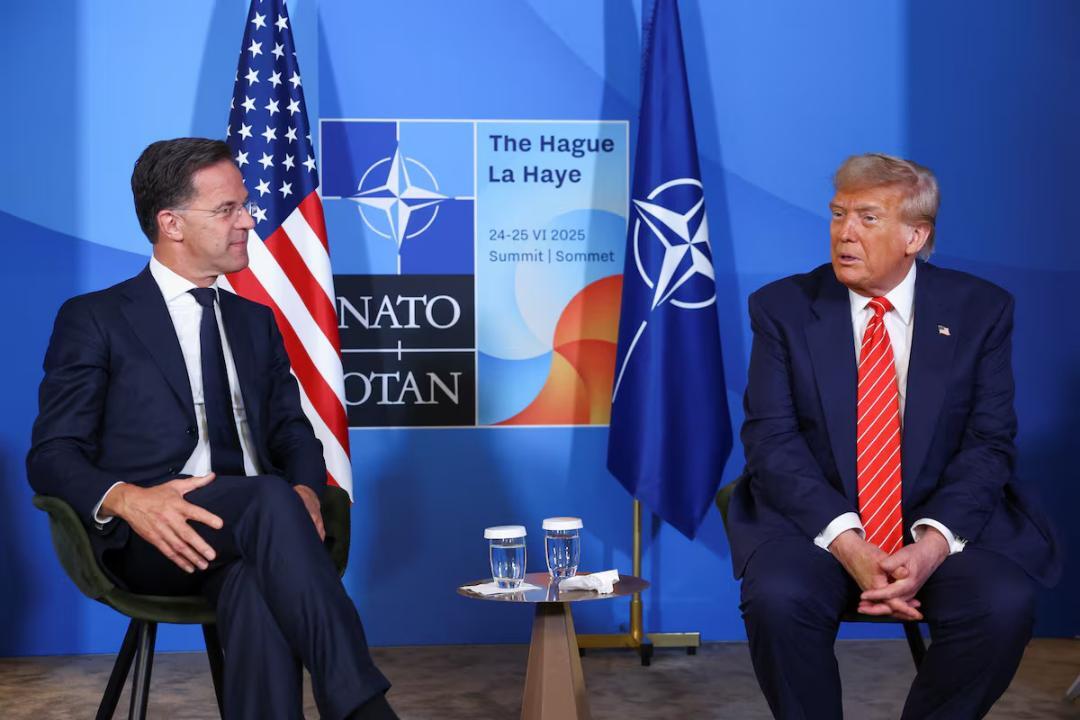
Daddy Has to Use Strong Language: NATO Chief on Trump Using Abusive Word for Iran, Israel
In a recent remark, NATO Secretary General Mark Rutte jokingly compared US President Donald Trump to a “daddy” who has to use strong language to get his kids to stop fighting. Rutte’s comment came after Trump used a profane word to express his frustration with Iran and Israel’s ceasefire violations.
During a press conference, Trump compared the two nations to “two kids fighting in a schoolyard” and then launched into a profanity-laced tirade, saying, “I don’t know what the f*** they are doing.” Rutte’s response was to humorously chime in, “Daddy has to sometimes use strong language to get (them to) stop.”
The remark was met with laughter from the audience, but it also sparked a debate about the appropriateness of Trump’s language and the role of leaders in setting an example for their constituents. As the world’s most powerful nation, the United States has a significant influence on global politics and culture, and the language used by its leaders can have far-reaching consequences.
Trump’s profanity-laced outburst was not the first time he has used strong language in public. In the past, he has been known to use coarse language to express his opinions, often to the surprise and dismay of his critics. However, the recent incident is notable because it came during a high-level diplomatic meeting, where world leaders were gathered to discuss pressing global issues.
Rutte’s comment was seen by many as a lighthearted way to address the situation, but it also highlighted the challenges that world leaders face when trying to navigate complex diplomatic situations. As the head of NATO, Rutte has a critical role to play in mediating conflicts and maintaining regional stability, and his ability to use humor and diplomacy to diffuse tense situations is essential.
The incident has also sparked a debate about the role of language in international diplomacy. In an era where social media dominates the global conversation, leaders must be mindful of the impact their words can have on global perceptions and relationships. The use of strong language can be particularly problematic, as it can alienate and offend people, and undermine trust in the leader and their government.
In recent years, there have been several high-profile incidents where world leaders have used strong language to express their opinions. In 2020, for example, Turkish President Recep Tayyip Erdogan used a profanity-laced tirade to attack his Greek counterpart, calling him a “fascist” and a “dictator.” Similarly, in 2019, North Korean leader Kim Jong-un used a profanity-laced speech to attack the United States and its allies, calling them “gangsters” and “rascals.”
In each of these cases, the use of strong language was seen as a way for the leader to assert their authority and dominate the conversation. However, it can also have unintended consequences, such as damaging relationships and undermining trust.
In conclusion, the recent incident highlights the challenges that world leaders face when trying to navigate complex diplomatic situations. While the use of strong language may be seen as a way to assert authority and dominate the conversation, it can also have unintended consequences and undermine trust. As leaders, it is essential to be mindful of the impact our words can have on global perceptions and relationships, and to use language in a way that is respectful and constructive.
Source:






